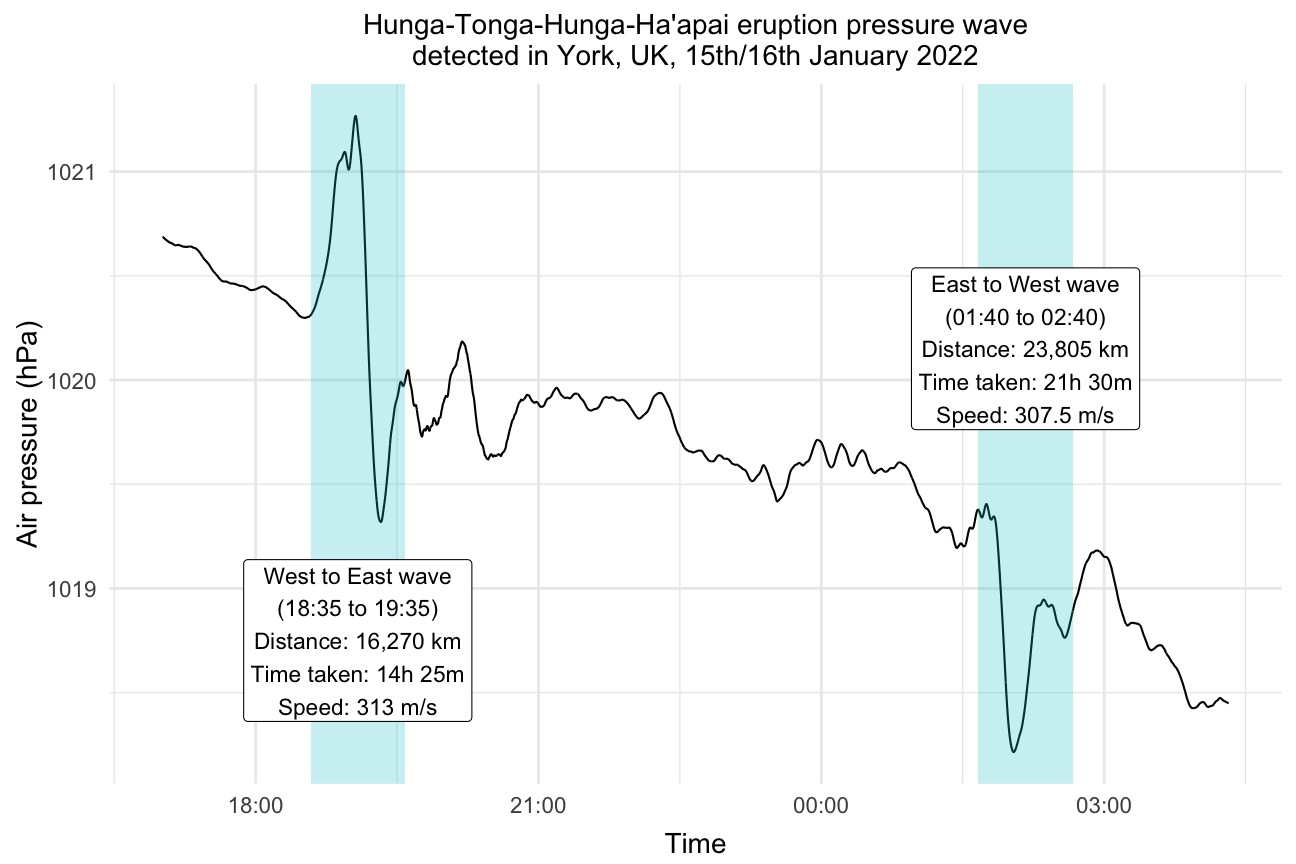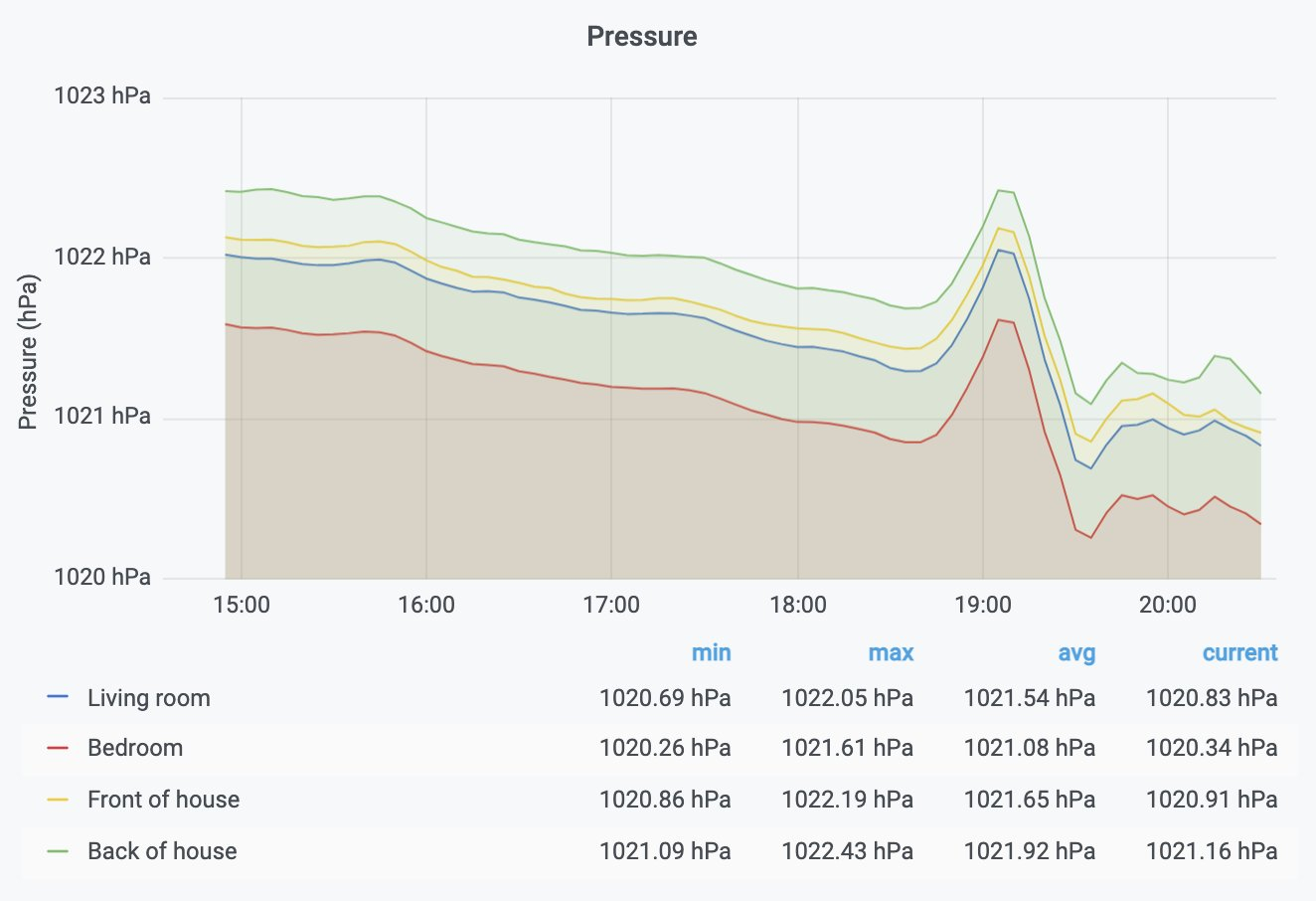When the Hunga Tonga-Hunga Haʻapai volcano erupted last week, many "citizen scientists" charted the impact of the awful event as its effects progressed across the world. Developer and ex-Pimoroni pirate Sandy Macdonald measured the resulting global pressure wave using a Raspberry Pi. Not only was the project a success, he also documented the process in real-time over at Twitter.
According to Macdonald, the measurement was taken from over 10,110 mi (16,270 km) away, in the UK city of York, and took approximately 14 hours and 20 minutes to reach the Raspberry Pi from the Pacific island.
The tools used to document the shockwave are easy to come by. Of course, the operation relies on a Raspberry Pi but the other critical component is a pressure sensor. Macdonald used a BME280 sensor (in a Breakout Garden package) to measure the pressure. The BME280 is an easy to use sensor and for his project Macdonald used Pimoroni's Breakout Garden Mini and a Raspberry Pi Zero. The data compiled from the sensor is output visually using a Grafana dashboard.


Once the first measurement was taken, Macdonald estimated how long it might take to detect another wave from the opposite direction and was able to successfully capture a second shockwave. The original estimate put the anticipated wave at an arrival time of 01:00 GMT while the actual wave was measured at around 01:40 GMT.
The original thread over at Twitter includes a plethora of comments from other users sharing their pressure sensor data and locations. Consistent spikes in pressure sensor data can be seen around the globe from Denver, CO to Germany—all measured using a simple pressure sensor module. Other user-compiled data can also be found including this map of the United States created by Daryl Herzmann showing the shockwave slowly spread across the country. Check it out to see exactly how big of an impact the eruption really had across the world.
Stay On the Cutting Edge: Get the Tom's Hardware Newsletter
Get Tom's Hardware's best news and in-depth reviews, straight to your inbox.

Ash Hill is a contributing writer for Tom's Hardware with a wealth of experience in the hobby electronics, 3D printing and PCs. She manages the Pi projects of the month and much of our daily Raspberry Pi reporting while also finding the best coupons and deals on all tech.